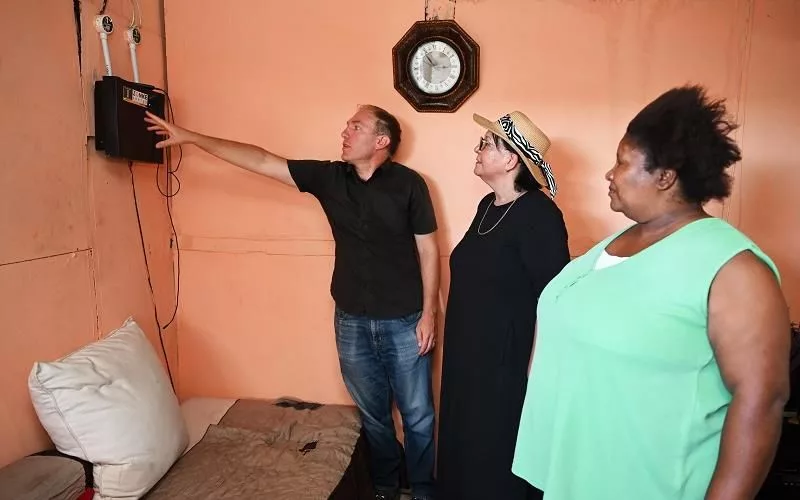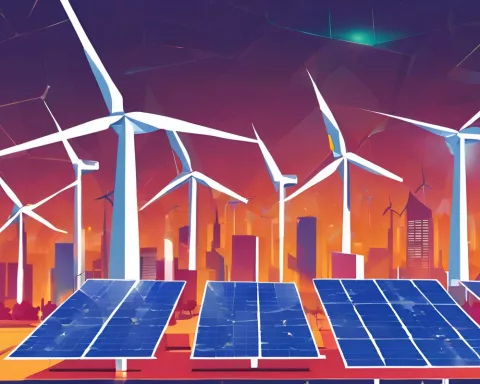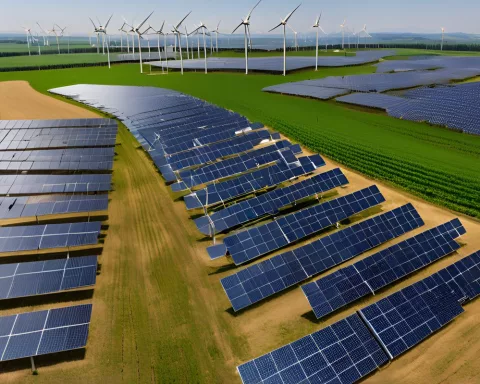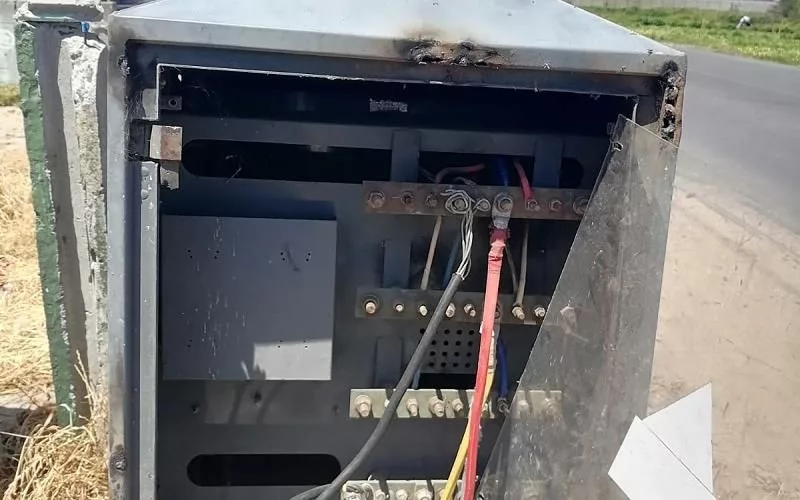Cape Town is leading the way in renewable energy solutions to improve living conditions in informal settlements. The Urban Energy Poverty Programme is collaborating with community partners to develop affordable, sustainable energy solutions such as indoor solar lights, renewable public lighting, and smart cookers. Education and awareness campaigns are promoting the advantages of alternative energy sources, while ongoing research and technological developments are advancing the programme’s goals. The City is committed to creating a brighter, cleaner, and safer future for its inhabitants.
Unleashing the Potential of Renewable Energy in Non-Grid Informal Dwellings: Cape Town’s Urban Energy Poverty Programme is embracing renewable energy solutions to improve the living conditions of inhabitants in informal settlements. Collaborative community efforts and technological developments are being made towards renewable, affordable energy solutions like indoor solar lights, renewable public lighting, and smart cookers. Education and awareness campaigns promote the advantages of alternative energy sources while mitigating hazards. The City of Cape Town is committed to sustainable living with a focus on renewable energy solutions.
Cities globally are transitioning from traditional energy sources and embracing renewable energy solutions to combat energy deprivation and enhance their inhabitants’ living standards. Cape Town is at the forefront of this shift as part of its Urban Energy Poverty Programme. The programme’s primary concern is informal settlements where standard grid-connected electrification is unfeasible.
Numerous old settlements are at the epicentre of this transformative voyage, which are virtually 100% electrified in areas provided by the City. However, countless existing and budding settlements exist on terrain where electrification still faces significant challenges. These difficult terrains include areas such as wetlands, ponds, and even road- and nature reserves.
In light of these limitations, the city’s primary aim is to deliver safe, sustainable energy. This initiative not only drastically enhances living conditions but also reduces the risk of catastrophic fires, typically caused by open, unattended flames.
Championing Collaborative Community Efforts
Highlighting the relentless efforts towards renewable energy, City Mayoral Committee Member, Councillor Beverley van Reenen, visited community partners. From iShack in Blackheath to Zonke Energy and the University of Exeter in Qandu Qandu, Khayelitsha, every organization is tenaciously striving to make non-grid electrification possible.
According to the City, these partnerships play a crucial role in bringing about significant change for the residents in the upcoming years. Their ongoing exploration into the advantages of renewable energy solutions, primarily indoor solar lights, renewable public lighting, energy for mobile phone charging, wonderbags, and cooking insulators, holds the promise of a brighter, cleaner, and safer future for the residents.
The collective endeavour of this journey is truly inspiring as the City, its inhabitants, and partner organizations collaborate to deliver renewable, affordable energy to the communities.
Advancing Research and Technological Developments
Amid this energy revolution, the City has carried out community surveys to comprehend the perceptions, hurdles, and prospects of alternative energy. Insights from this research will steer the future direction of the Urban Energy Poverty Programme.
Organizations such as iShack, Zonke Energy, and the University of Exeter have expressed their admiration for the City’s commitment to renewable energy and have elucidated their contributions. Whether it’s iShack’s comprehensive work in supplying basic solar electricity using small off-grid solar units, Zonke Energy’s mission to ensure that all South Africans reap the benefits of the transition to clean energy, or the University of Exeter’s lighting project, every initiative is creating a significant impact on the community.
Future Projects and Collaborations
The City’s imminent projects and collaborations aim to solidify its dedication to renewable energy even further.
Among these endeavours, high-mast lights in informal settlements are being substituted with solar lights. Despite these high-mast lights illuminating a large area, they cast dark shadows between shacks, resulting in poor-quality light. The intention is to utilize solar power to offer brighter and more effective public lights, with the City actively pursuing corporate social investment for these projects.
Solar lights are also being contemplated for indoor lighting and mobile phone charging, crucial for low-income households dependent on these devices for information, communication, and job opportunities. Partnerships, funding, donations, and sponsorships are being sought to make this a reality.
Smart cookers and wonder bags are another alternative energy solution. These smart cookers, once heated, can continue to cook food without additional energy, thereby saving costs.
Promoting Education and Consciousness
Alongside these initiatives, education and awareness campaigns are crucial in promoting a better understanding of different energy sources, their advantages and hazards. Providing education on solar technology and encouraging safe practices, such as safe candle use and ventilation during paraffin use, can help mitigate adverse effects like indoor pollution.
In a nutshell, the City’s newfound focus on renewable energy solutions is a testament to its commitment towards sustainable living. By partnering with grassroots organizations and fostering education and awareness, the City is not only improving living conditions but is also setting the stage for a safer and more sustainable future.
1. What is the Urban Energy Poverty Programme in Cape Town?
The Urban Energy Poverty Programme is a collaborative effort to develop affordable and sustainable energy solutions for non-grid informal dwellings in Cape Town.
2. What kind of renewable energy solutions are being developed?
The programme is developing indoor solar lights, renewable public lighting, smart cookers, and other alternative energy sources.
3. What are the benefits of using renewable energy in informal settlements?
Renewable energy solutions can drastically improve living conditions by providing safer, cleaner, and more affordable energy. They also reduce the risk of fires caused by open flames.
4. What kind of research is being done to support renewable energy solutions?
The City has conducted community surveys to understand the perceptions, hurdles, and prospects of alternative energy sources. Ongoing research and technological developments are advancing the programme’s goals.
5. What future projects and collaborations are planned?
The City plans to replace high-mast lights in informal settlements with solar lights and is seeking funding and partnerships to provide solar lights for indoor lighting and mobile phone charging. Smart cookers and wonder bags are also being considered as alternative energy solutions.
6. How are education and awareness being promoted?
Education and awareness campaigns are essential in promoting a better understanding of renewable energy sources and safe practices. The programme is providing education on solar technology and safe candle use and ventilation during paraffin use to mitigate adverse effects like indoor pollution.












